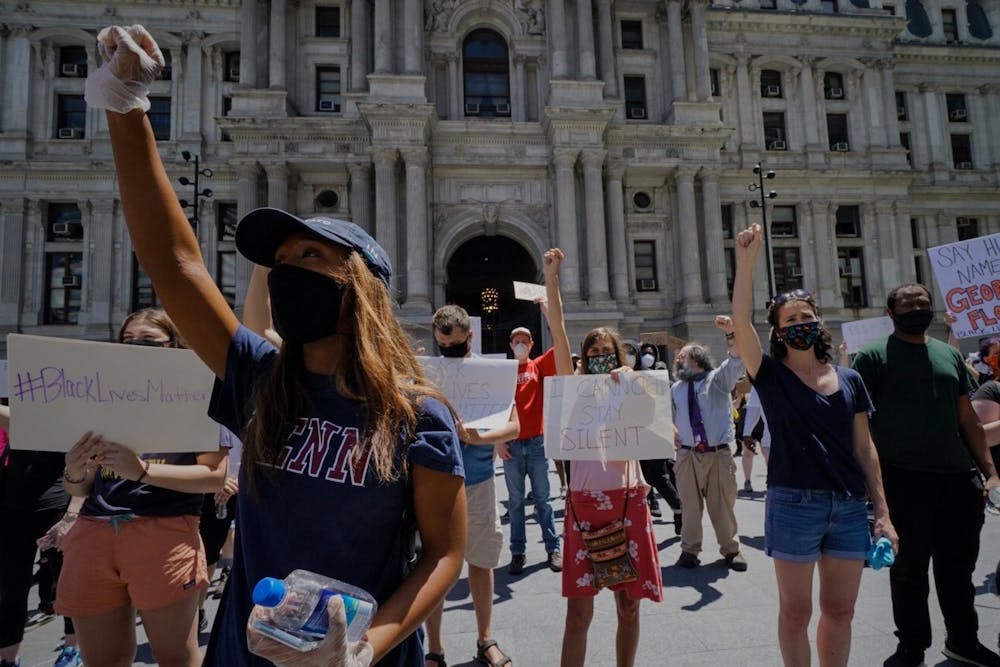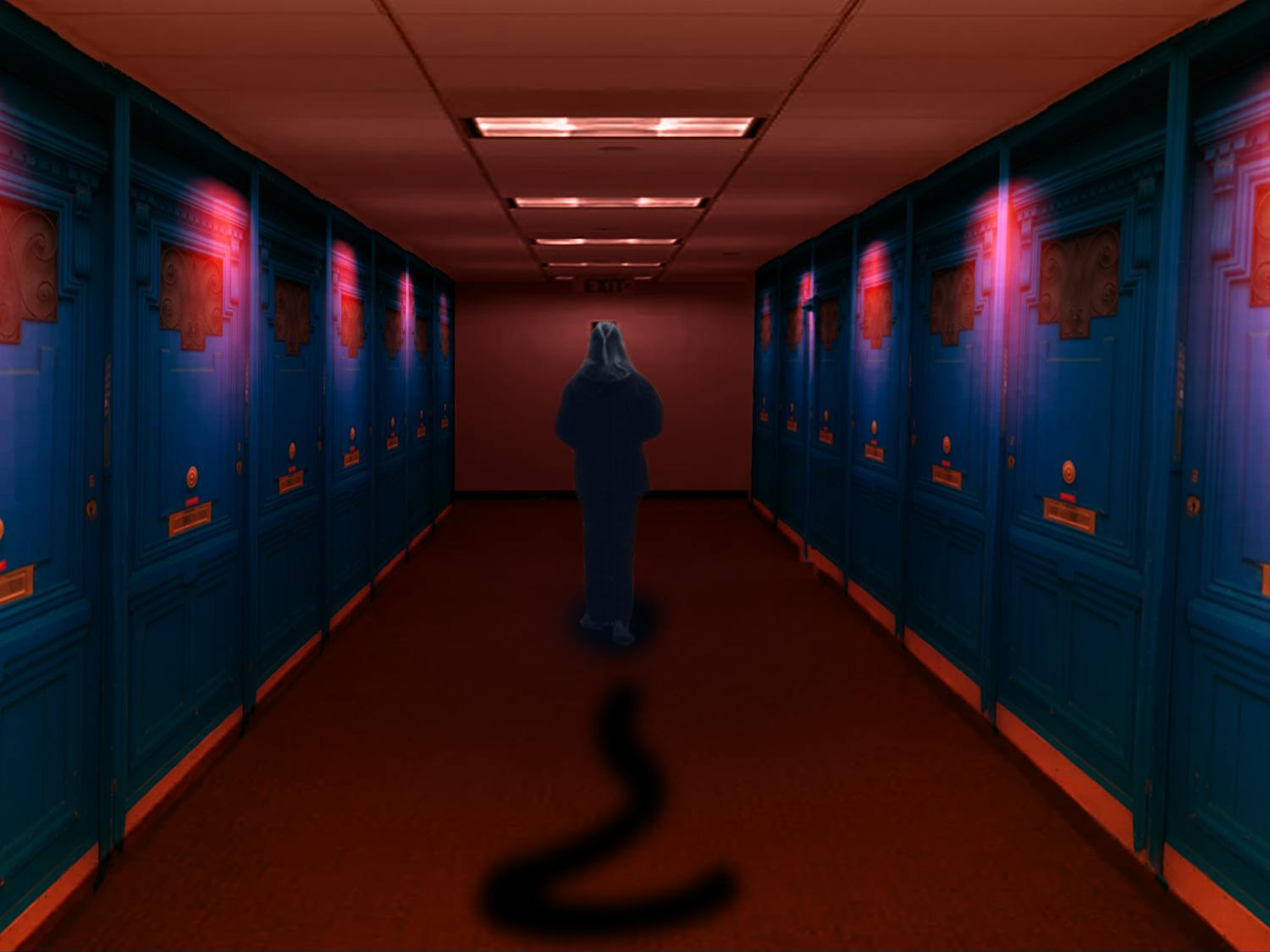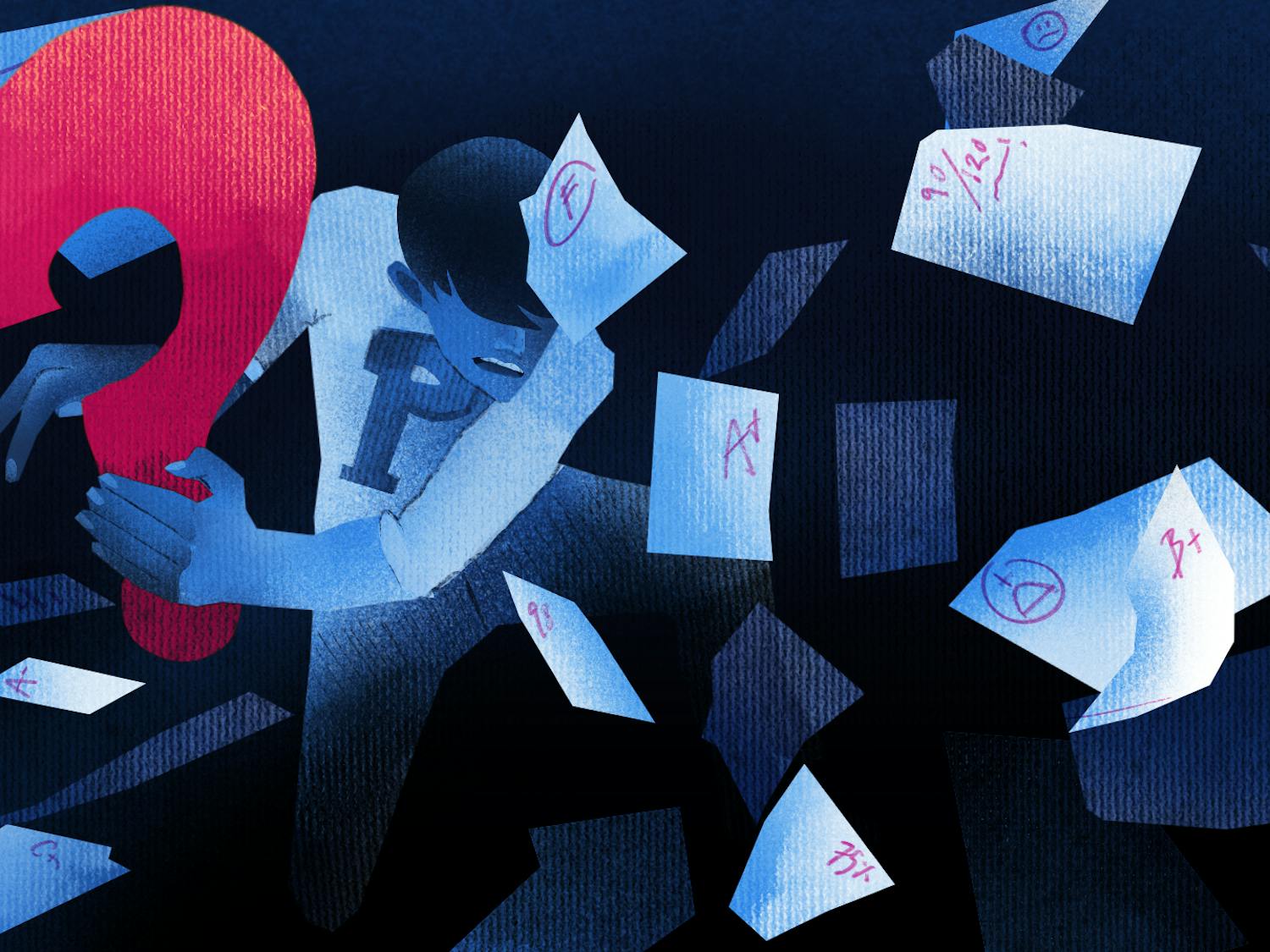Before I begin, I want to make clear that the most important voices in this crisis are Black voices. This article is not a replacement for those voices — it is about accountability. Calling out your non-Black, privileged peers is only one of many actions we can take to ensure that the voices of our Black peers at Penn and elsewhere can be heard and lifted.
I was sitting in 10th grade English class in my hometown of Cairo, Egypt, when Donald Trump was elected President in 2016. Like so many other American citizens, I was outraged and heartbroken. But after a few weeks of feeling disillusioned, trying in vain to find reasons the result might be changed, I started to feel exhausted. I was tired of spending all my energy being outraged. I chose to stop thinking about it.
My left-wing beliefs lost the battle against my political fatigue and I moved on. I selfishly justified this by saying, “I’m not mad because it doesn’t affect me.” Despite being a female American citizen, the fact that I lived overseas and was underage was the luxury that enabled me to turn a blind eye to the crisis underway back home. Then when my mom, exhausted as I had been, reminded me that Trump’s policies could affect me, too, one day, did I realize the flaw in my reasoning. Only by putting myself in the line of fire of these policy changes was I able to understand the magnitude of a Trump presidency. Only then did I realize I had a duty to feel outraged — if not for myself, for other people affected.
Now, at the close of a week that feels like the most politically consequential of the past few years, a different social crisis challenges us to feel outraged even when we have the choice to stay comfortable. Social media is overtaken by rage toward the most recent incidents of police brutality. The Black Lives Matter movement has claimed our internet consciousness for days now, and anti-police sentiment feels more visible today than ever.
The alt-right, on the other hand, has not only threatened to kill rioters across the country, but has also flip-flopped between appropriating George Floyd’s memory as its rationale on the one hand, and justifying his death on the other.
Bearing this rage in mind, I am reminded of the feeling of political exhaustion that I experienced in 2016. This is a moment of social and political crisis, and it creates tension both for individuals and for communities — Twitter is just one arena where we see that. But the reality that I have come to understand, moving to the United States and being held accountable and educated by my peers, is that this tension is only escapable for some of us. For others, it is an unabating reality.
I belong to the former group, as do thousands of predominantly white, wealthy students on Penn’s campus. For the Black-identifying people of color for whom involvement in issues like police violence is not a choice, but a means of dealing with inherited trauma as well as a means of survival — there is no escape from this tension. And most disgracefully, the unwavering frustration they feel can be, and often is, so easily ignored by those who have political and social privilege.
My apathy to Trump’s policies while home in Cairo has helped me to understand: the difference between a privileged person and an oppressed person is that, as a privileged person, I can choose to deal with my discomfort by retreating. An oppressed person, even more uncomfortable, has no choice but to be involved.
People justify apathy in so many different ways. Maybe you don’t know enough about the issue, maybe political involvement is causing you mental distress, or maybe you’re worried that your position of privilege will cause discomfort in the spaces you want to enter as an activist. I was uneducated, upset, tired, and worried, too. I still feel those things — it’s impossible not to when the subject of politics is as nasty as it is. It’s easy to resign to hopelessness.
But I propose that we can remedy apathy through empathy. As sociologist Sam Richards put it, empathy allows us to “attend to other lives, other visions. Listen to other people. Enlighten ourselves.” As privileged people, we must stop expecting oppressed groups to educate us, to accommodate us, or to be civil toward us. At this moment, privileged Penn students and privileged people everywhere have the responsibility to educate themselves, to call upon one another, and to be outraged alongside our Black peers who have no choice but to feel outraged.
To have privilege and to be inactive is not only to condone the status-quo, but it is to reject empathy. And no student of an Ivy League university should feel comfortable lacking empathy, unless they are also comfortable living in ignorance of the world. Empathy is a trait with critical political consequences, not least of which is justice for George Floyd and the many Black lives we have lost as a nation.
As much as it may seem like social media and politics have morphed into one, you don’t have to engage in social media, or in the media at all, to give your allyship to communities in need. News is distressing — surveys claim that about 68% of Americans feel fatigued by it — but fatigue is not an excuse for inaction, nor is apathy a fair response to injustice.
Feel empathy for the Black people in your community who feel fear and outrage at this moment; it will give you the energy to be an ally. It will give you the energy you need now, to make donations to Black-led activist organizations and to call upon your privileged peers to join you in protests as well as direct constituent interactions in support of the groups whose lives literally depend on them — especially because yours doesn’t.
In order to really be allies to citizens in need, the narrative of privilege has to change. “Privilege” is not a dirty word. It is a reality and a dormant weapon. Use it to learn, and don’t stop learning. Be honest about your former apathy as you shift toward action — and ensure that this action is lasting. Don’t let shame paralyze you. Ask your peers to explain things you don’t quite understand, and then involve yourself. If you’re uncomfortable, ask your peers to get involved with you. Call upon others to make the shift too. Don’t waste hours on Twitter, seething over what you see. You have a civic duty to participate, not to drive yourself crazy. Use empathy to understand the oppressed. Do whatever it takes. Asking yourself, “What if it were me?” is not a sign of selfish weakness. It’s how we wake up.
Resources for action and education:
ACLU Fighting Police Abuse Community Action Manual









